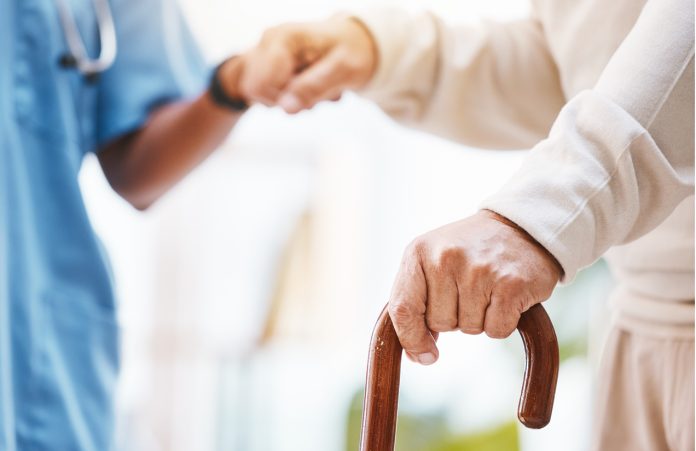Falls cost the UK £4.4bn per year. Smplicare’s fall risk algorithm is 85% accurate at predicting future falls which can help prevent them. Here, they tell us more
Funded by UK Research and Innovation, Edinburgh-based startup Smplicare has worked with over 30 health and social care sector partners to recruit 300 older adults with a history or fear of falls across England, Scotland, and Wales into a groundbreaking fall prevention study. Study participants ranged in age from 50 to 95 years and represented a broad spectrum of socioeconomic, ethnic, and geographic backgrounds. They were required to wear a commercial smartwatch or fitness tracker consistently and stand on a body composition scale once per week over a six-month observational period. Smplicare also built a mobile application within which participants reported when they had a fall, provided it was safe for them to do so, and responded to a series of health and social care sector-derived questionnaires.
Fall risk AI algorithm
To date, there have been over 200 falls, only eleven of which resulted in hospitalisation. Smplicare utilised the first-of-its-kind dataset generated by the study to develop a novel Machine Learning algorithm that can predict future fall risk with 85.43% accuracy and just 15 days of consecutive data from commercial wearable devices. This means that had their solution been on the market, they had the potential, with timely and effective intervention, to prevent nine out of the eleven falls that resulted in hospitalisation.
Smplicare CEO Garrett Sprague highlights the impact: “Prediction is just the first step, if we can identify people at high risk early, we can put them on a path with the possibility of prevention. Even with this small sample we could have saved the NHS and social care system well over £100,00. The social and financial impact of our technology relative to the low cost to implement could be a real game-changer.”
Easy-to-use mobile application
The fall risk algorithm will be integrated into an easy-to-use mobile application developed alongside older adult research participants following over 1,000 unique engagements, ranging from codesign and user testing to interviews and surveys.
Alongside the algorithm, the application integrates principles of supported self-management of chronic conditions, personalised and adaptive health coaching, and validated fall prevention exercise programmes.
The full platform will launch later this year, but interested individuals, organisations, and health systems can sign up for early access or demo via Smplicare’s website.
The study additionally generated over 10,000 responses to the self-reported questionnaires, providing interesting contextual insights into the impact of falls and the levels of anxiety, loneliness, and fear they bring.
Smplicare combined these insights with industry research and the responses to over a dozen bespoke surveys to develop the Smplicare Age-Well Index.
Ageing well
Smplicare’s COO, Alexandra Reissig, shares that ‘The Smplicare Age-Well Index is designed to look beyond falls and into what it means to age well. It’s grounded in leading research and used to help us curate content and tailor recommendations around things like rediscovering a sense of purpose in later life or exploring emotional intelligence and self-awareness.’
The company has a deep belief in continuous learning and growth and a vision of a world in which everyone enjoys later life. For more information, please email hello@smplicare.com
Read our previous article here.
Editor’s Recommended Articles






